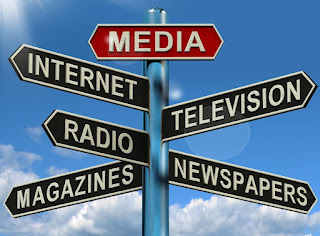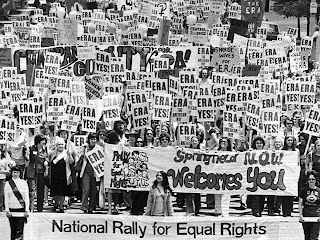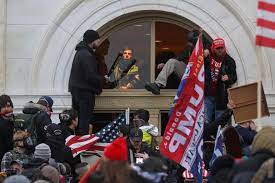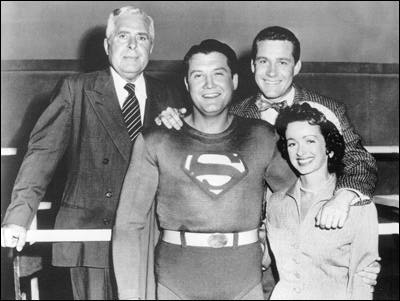On January 20, 2021, Joseph Robinette Biden took the oath of office for the Presidency of the United States and in that moment became indirectly responsible for 330 million Americans regardless of who they voted for. Like every President before him, he swore to uphold the law and protect all Americans. The question he likely asks himself now is How do I protect democracy from the very industry that has turned it into a mash up of polling points, societal trends, and party loyalty?
Today's media (social, advertising, print, radio, and television) needs to be "schooled" in what democracy is and how democracy works. Here are a few things they might have missed in their Civics class.
What is Democracy?
First off, democracy is not about the individual but about a nation that chooses to live under one set of rules for the benefit of everyone. Presidential approval ratings are selfish reminders of what has divided this country. It is not whether people like Biden but whether they see improvement at the end of his four-year term. Shows like The View , Meet the Press and other opinion based talk shows encourage viewers to take a short term, me-me-me view of political problems that cannot be fixed with simple legislation. Today's media should educate and explain while leaving personal preferences to what takes place in the voting booth.
Next, democracy is not about voting rights or filibusters but about how many people are on the the ballot. Coming from a monarchy, the founding fathers thought having any choice was a luxury. What good does it do to register more voters and make voting easier when there is only one name on the ballot? No one is reminding Bernie Sanders that he pledged to start a grass roots organization dedicated to preparing candidates to take on the role of elected officials. The Obamas are not working to educate younger voters about how to evaluate candidates. Both parties sow party loyalty based on hot-button topics and push a leftover agenda from past administrations. As if time is stuck in some strange moment that long ago ceased to exist, Congress attacks problems with the same solutions that have been used for over 200 years. Not learning from the past, today's media worships the well meaning but untrained and clueless candidate. These overnight breakout successes like Alexandria Ocasio-Cortez, Kamala Harris and yes, Donald Trump, are better news stories than seasoned professionals that have worked their way up from local government. What message does that send to voters, and is it really all that surprising that these STARS of the campaign trail fail to do anything more than make headlines? How does it feel to gaslight the public with a constant diet of celebrity-style hype and soft-ball questions?
Finally, democracy is not a popularity contest but about making informed choices without fear, peer pressure or manipulation. Contrary to VP Harris's take on this country's standing as a free society, our simplistic form of government pales in comparison to some democracies. While our government declares a winner and sets up a combative environment which rarely achieves much, other countries open the ballot to multiple parties and require the majority party to come to a consensus BEFORE the election is certified. Failure to do so nullifies the election and it begins again. As mass media focuses on the best news story and the most supportive advertisers, they fail to grasp how they warp the voting process in a way that is far more dangerous than requiring a picture ID or limiting voting hours. Their focus on an ever changing future robs the public of the present by distracting them from what is important in the here and now. That isn't democracy. That's propaganda.
A Bit of History
President Biden is not the only president to be concerned about the integrity of the American election process.
In March of 2001, just three months after Al Gore lost his final 2000 election challenge, former President Jimmy Carter received the first Jonathan Myrick Daniels '61 Humanitarian Award, at Virginia Military Institute in Lexington VA.
For a small town reporter, this was a once-in-a-lifetime event. As Carter explained his work establishing democratic governments around the world, he made a simple but blunt statement about the condition of American elections. Whether it was part of his acceptance speech or the questions he answered following the ceremony, I do not remember but he very clearly stated his organization would not take on the American political process because it failed to meet the high standards that his group had for democratic leadership. It was such an unexpected and confusing comment that many compared notes before reporting it to readers. I have no way of knowing if he changed his assessment of this situation or not.
Twenty years and five national elections later, the United States has failed to make any meaningful changes in the political process-- a process that benefits the few and subjugates the many. Carter, in being a single term president, knew, all too well, the role that television and political reporting had in putting a Hollywood actor named Ronald Reagan in the White House. The same frenetic focus on poise and photo-ops overshadows today's political reporting. Carter brought peace to a region of the World, even for just a short time. Reagan took a global energy crisis and inflation and turned it into a massive change in the tax code that the country has yet to recover from. Which was better?
If journalists want to champion democracy instead of damage it, they need to change their focus from agency ratings, high dollar salaries, Twitter followers and website clicks and begin doing the hard work of report the ugly reality of the election system. Here are a few questions they might begin to ask.
1. Why is the United States one of the few countries that allows political organizations and fund raising to be considered non-profit or charitable organizations?
2. What percentage of PAC funding goes into supporting the candidate, family and staff? (Remember John Edwards and his hair cuts?)
3. Is the minimum support rule required to enter debates a form of voter suppression because these events choose to squash the viewpoints of people who mainstream media doesn't give the time of day?
4. Explain to the public the difference between the one vote-one person process that occurs on election day and the loosely monitored polling methods used through social media. There is no comparison and the results amount to misinformation and voter manipulation. Will agencies be embarrassed to admit they are not a fair representation of national demographics?
Before criticizing any elected officials, media has an obligation to make sure their findings are as objective and factual as possible. Like CEO who blames everyone else for the company's failures, Congress encourages mass media to distract the attention from their irresponsibility. Perhaps that is what voters should understand is the real form of voter suppression.






